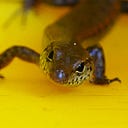Member-only story
Webs at Dawn
Running the silk gauntlet

A certain amount of peril was involved in taking these photographs. Not Temple of Doom level — although a Kookaburra was calling in the background — but enough to make me tread carefully. It wasn’t the dozens of spider webs on the ground that made me cautious, but the Garden Orb Weaver webs to left and right, each about half a metre across with anchor threads as tough as marquee guy lines.
I did not want to trip. (Oh, yes, they’re strong enough to catch your foot.) And I particularly did not want to find myself face down among this spider encampment. Did I say dozens of webs? I meant hundreds. They were everywhere.
These densely woven sheet webs belong to the wolf spider Venonia (family Lycosidae). Venonia is unusual among lycosids in constructing webs. Most members of the family are active hunters, using silk only to protect their eggs. Venonia and a few other wolf spider genera (such as Sosippus in North America) have taken to web-construction with enthusiasm.
Most webs are small — about half the size of your palm — but they are made of thousands of threads tethered to grass and weeds. The fog that shrouded the trees also revealed these tiny structures.
In the centre of each, is a funnel just big enough to contain the spider, and beneath that, a tiny burrow.

These spiders bolt at the sight of a looming lens. With their eight eyes and sensitive hairs (trichobothria) that detect air movement, they are impossible to approach undetected. Spiders always know where you are.
How they respond varies between individuals. Most flee — but with hundreds of webs, there is always a chance of encountering one tolerant (or over-confident) spider. I found that one.

As the morning sun burned away the fog, the webs disappeared. Venonia silk is so fine that only drops of water — dew or rain — make it visible. The fog that shrouded the trees also revealed the tangled threads. Although there seemed to be no webs, I still trod carefully — not only to avoid the orb-weaver trip wires but also to spare the tiny spiders and their industrious work.
Note: In other parts of the world, spiders of the family Agelenidae (known as funnel-weavers or grass-spiders) build similar webs. As far as I can tell, Australia has no native Agelenidae, except for a species of Oramia reported from Lord Howe Island. Arachnologists, please let me know if that is not correct.
